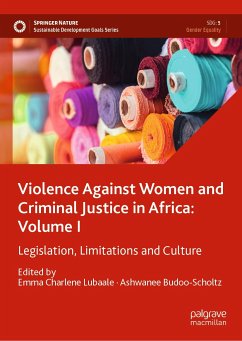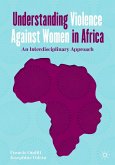This book examines violence against women in Africa and criminal justice from the perspective of African scholars, practitioners and experts. As a global and long-standing issue, violence against women is gaining public visibility across the African continent with some states announcing a national crisis warranting immediate redress. At the global level, the elimination of all forms of violence against all women and girls forms a key part of United Nations Sustainable Development Goal 5: Gender Equality. Split across two volumes, these books present a comprehensive analysis of the latest research and theories, principles and practices of criminal justice systems, criminal justice accountability mechanisms, and the key challenges women face in their quest for justice on the African continent. Volume I focusses on legislation and its impact, the limitations of criminal justice responses, and the cultural and social norms regarding access to justice. Volume II examines sexual violence and vulnerable women's access to justice in Africa. They adopt a comparative approach that highlight gaps and good practices to provide a rich source of authoritative information for promoting an intra-African dialogue and cross-fertilization of ideas across the different criminal justice traditions in Africa. Both volumes seek to advance discussions on eliminating violence against women in Africa and speak to those interested in criminal justice, violence, gender studies and African legal studies.
Ashwanee Budoo-Scholtz is the programme manager of the Master's in Human Rights and Democratisation in Africa at the Centre for Human Rights, Faculty of Law, University of Pretoria, South Africa.
Dieser Download kann aus rechtlichen Gründen nur mit Rechnungsadresse in A, B, BG, CY, CZ, D, DK, EW, E, FIN, F, GR, HR, H, IRL, I, LT, L, LR, M, NL, PL, P, R, S, SLO, SK ausgeliefert werden.









